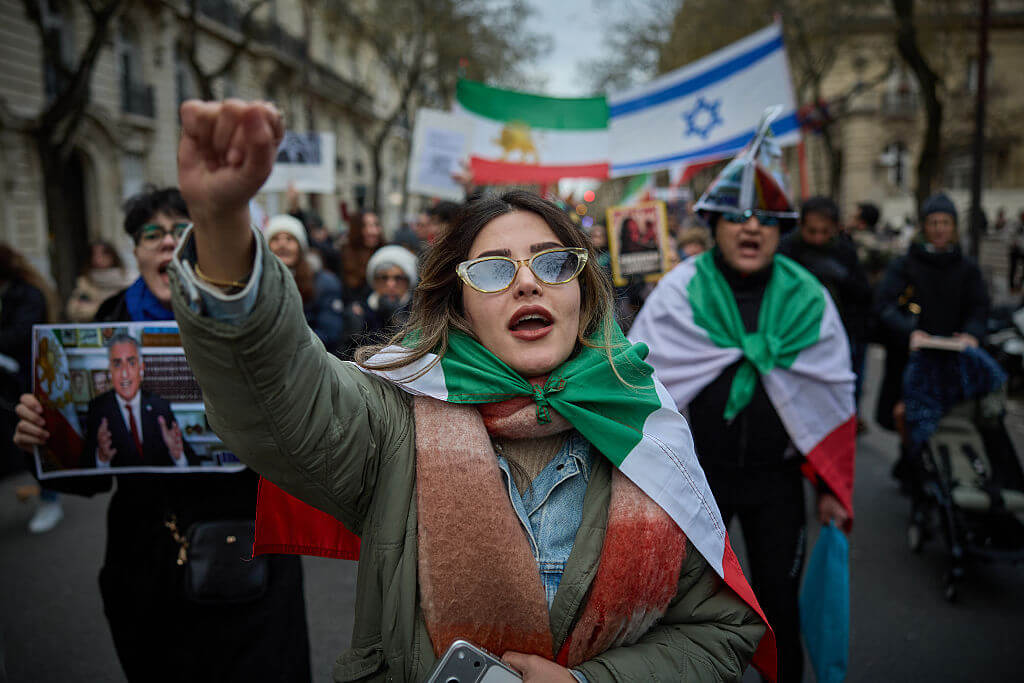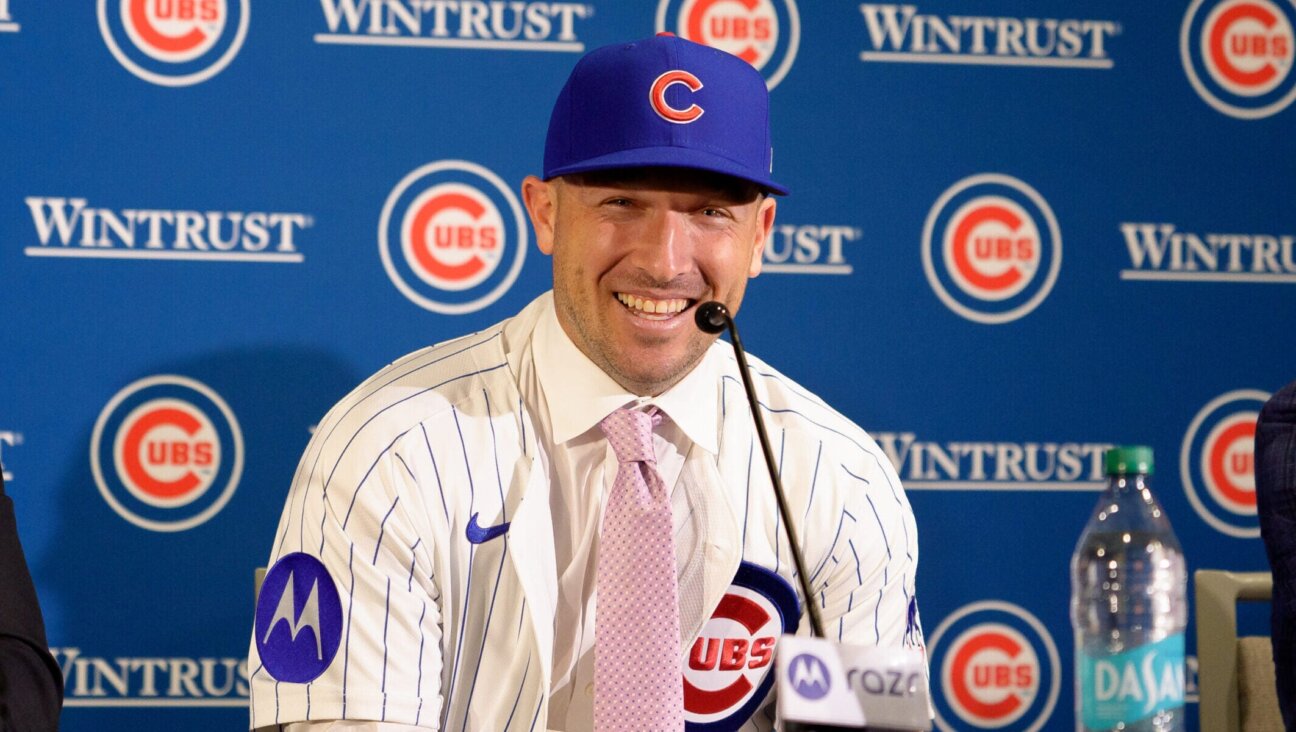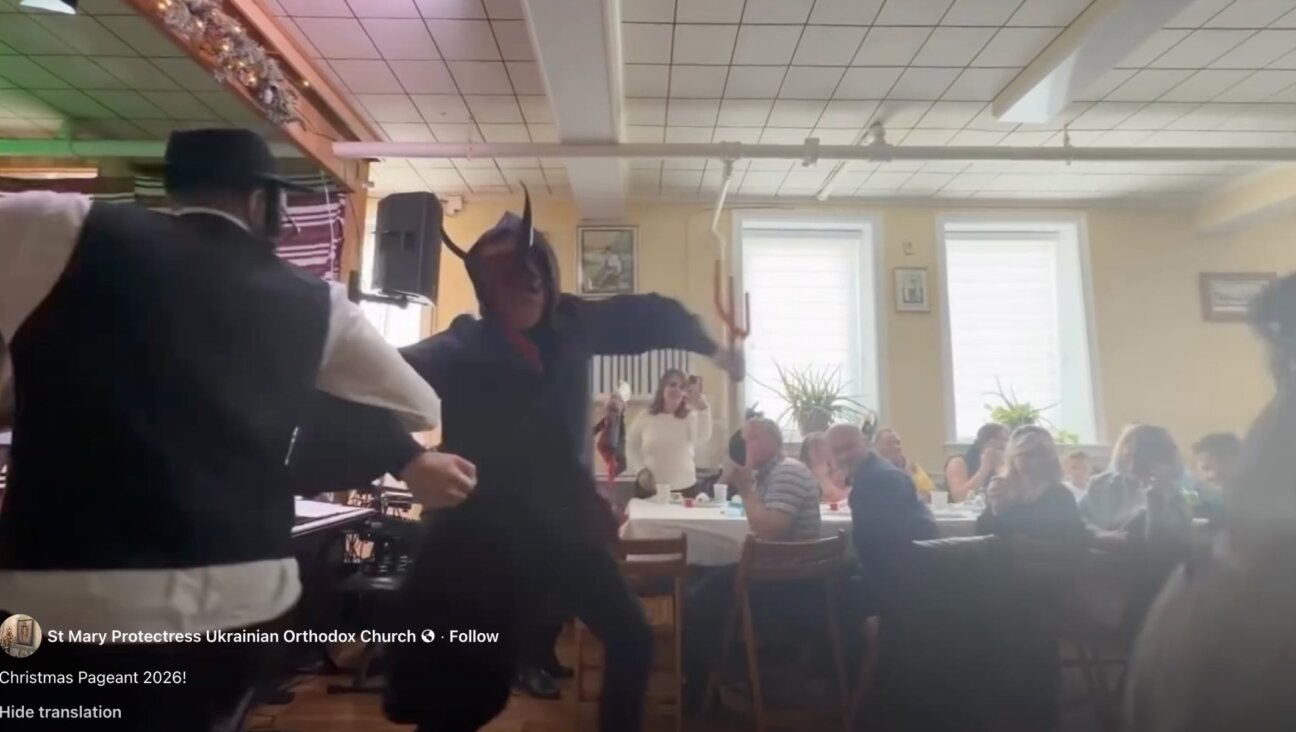Arabs Protest as Probe of Deaths Is Dropped
TEL AVIV — Israeli police and justice officials were fighting this week to prevent a full-scale crisis of confidence with the Israeli Arab community, after a police investigation decided not to bring any charges in the October 2000 police shootings that left 12 Israeli Arabs dead.
The decision by the Justice Ministry’s Police Investigations Department, announced September 18, has prompted a wave of protests and demands for a new investigation. The Arab Higher Monitoring Committee, a group of elected officials that often speaks for the Israeli Arab community, declared a weeklong hunger strike to demand a new probe. The annual commemoration of the shootings, which took place last weekend in Arab villages across northern Israel, was the largest and angriest in the five years since the traumatic events.
Attorney General Menachem Mazuz announced last week, on the eve of the October 1 anniversary of the shootings, that the state attorney’s office would conduct a “reassessment” of the investigation’s conclusions, short of a full-scale reopening of the probe. But the decision, coming just days after Mazuz himself publicly attacked the critics of the investigation, did little to quell the protest.
“This is a cover-up,” said Knesset member Muhammad Barakeh of the Arab-dominated Hadash Party, echoing the sentiment of the slain protesters’ families and many Arab citizens. Critics said Mazuz announced the review not for the sake of justice, but to forestall a Supreme Court appeal that could have ended in an embarrassment for the police investigations unit and Mazuz himself.
The 2000 shootings took place during a weeklong wave of rioting that swept Arab regions of Israel immediately after the outbreak of Palestinian violence in the territories, now known as the intifada. Faced with tire-burnings, firebombs and mass marches that some observers called a near-insurrection, police responded with live fire. Twelve Arab Israeli citizens were killed, along with one Palestinian from the territories and one Israeli Jew.
A state commission appointed a month later to investigate the shootings, headed by Supreme Court Justice Theodore Or, concluded in September 2003 that police had responded with disproportionate force, in part reflecting ongoing disparities in the treatment of Arab citizens of Israel.
Arab Israelis make up nearly 20% of Israel’s population. Often viewed by their neighbors with suspicion because of their ethnic and religious ties to the Palestinians in the territories, they have long complained of discrimination, ranging from police mistreatment to unequal funding of social services.
The Or Commission, while noting the extreme violence of the October 2000 riots, concluded that police did not face a clear and present danger to their lives and that the use of live fire appeared unjustified. The commission named several specific instances of individual officers believed to have shot demonstrators or given orders to snipers, including the police Northern District commander, Alik Ron.
In his September 18 decision not to bring charges, the head of the police investigations department, Herzl Shviro, said he could not produce evidence against any of the policemen implicated in the deaths. He blamed the lapse of time since the events, as well as the refusal by some bereaved families to allow autopsies. Shviro said the specific findings of the Or Commission had been based on evidence that would not stand up in court.
Shviro’s statement caused an immediate uproar that crossed ethnic and communal lines. One prominent member of the Or Commission, academic and former diplomat Shimon Shamir, declared: “It just doesn’t stand to reason that 13 citizens were killed and no one would stand trial.”
Shamir’s statement touches the heart of the matter. For most Israeli Arabs, what transpired in October 2000 was the systematic killing of Israeli citizens by a brutal police force without government intervention. For Shamir and the Or Commission, it remains inconceivable that Israeli citizens could join a demonstration — however violent — and end up dead.
For many Israeli Jews, the shootings were an understandable response to a violent rebellion, timed to coincide with the Palestinian uprising in the West Bank and Gaza and aimed at bringing Israel to its knees. “When a policeman goes out to face an Arab demonstrator, he believes that the man he confronts sees him as the enemy,” a senior police commander, David Tzur, testified to the Or Commission.
Shviro himself acknowledged in a television interview this week that some key pieces of evidence in the 2000 shootings may have been withheld from his investigators by officers seeking to protect their colleagues. But he defended his decision not to bring charges given the lack of evidence.
Complicating matters, the state attorney’s office that Mazuz assigned to review the police investigation is currently headed by a former head of the police investigations department, Eran Shendar. Justice Ministry officials indicated that Shendar would be not be involved in the upcoming review.
The police investigations department is a unit of the civilian Justice Ministry, not a police internal-affairs bureau. Nonetheless, its objectivity has been questioned in the current case, partly because its staff includes uniformed police officers.
The department came under renewed fire this week in a separate case, after deciding to close the files against four officers of Druze Muslim background who were accused of joining in riots in the Galilee Arab village of Maghar last February. Some 6,000 Christian Arabs fled the village after their homes and stores were burned by Druze attackers. Investigators said there was not enough evidence to bring charges against the four.
The two decisions have prompted demands for the unit to be civilianized and staffed by lawyers rather than police officers.
But no such technical solution will heal the wounds opened up last week. “The only acceptable end would be the prosecution and sentencing of those responsible,” said Arab lawmaker Ahmad Tibi. For the judicial system, this position amounts to demanding a verdict even before the trial; for Israeli Arabs, it is nothing but a cry for justice. There were few signs this week that the chasm can be bridged.
















